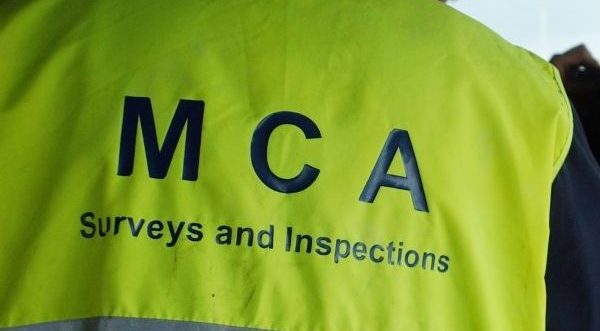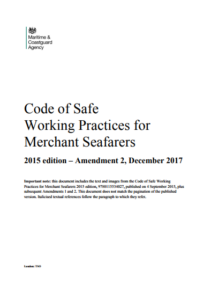UK MCA released an updated version of the ‘Code of Safe Working Practices for Merchant Seafarers’ in late December 2017. The amendments advise on improving health and safety of seafarers primarily on board UK registered ships.
The Code provides guidance on safe working practices for numerous situations that occur on ships, and the basic principles can be applied to many other work situations that are not specifically covered.
However, it should not be considered a comprehensive guide to safety and its advice should always be considered in conjunction with the findings of the operators’ risk assessment, and any information, procedures or working instructions provided by the manufacturer, supplier or any other source should be followed, UK MCA notes.
Safety risks onboard can lead to death, permanent disability, temporary disability or reduced work capability. Occupational health and safety risks may arise from work-related hazards or from the general living and working conditions on board.
If some risks are cannot be avoided, appropriate control measures should be used to minimise the hazards that may cause injury, disease or death. Harmful exposure may have short-term or long-term adverse health effects.
The above risk risks include, but are not limited to, the following:
- Ambient factors, like noise, vibration, lighting, ultra-violet light, non-ionising radiation and extreme temperatures.
- Inherent hazards, such as the vessel’s structure, means of access, ergonomic hazards and hazardous materials such as asbestos.
- Hazards arising from work activities, such as work in enclosed spaces, use of equipment and machinery, working on and below deck in adverse weather, dangerous cargo and ballast operations, and exposure to biological hazards or chemicals.
- Health risks, such as fatigue and impacts on mental occupational health; and the emergency and accident response.
Below you can view the full ‘Code of Safe Working Practices for Merchant Seafarers’, as published by UK MCA































































